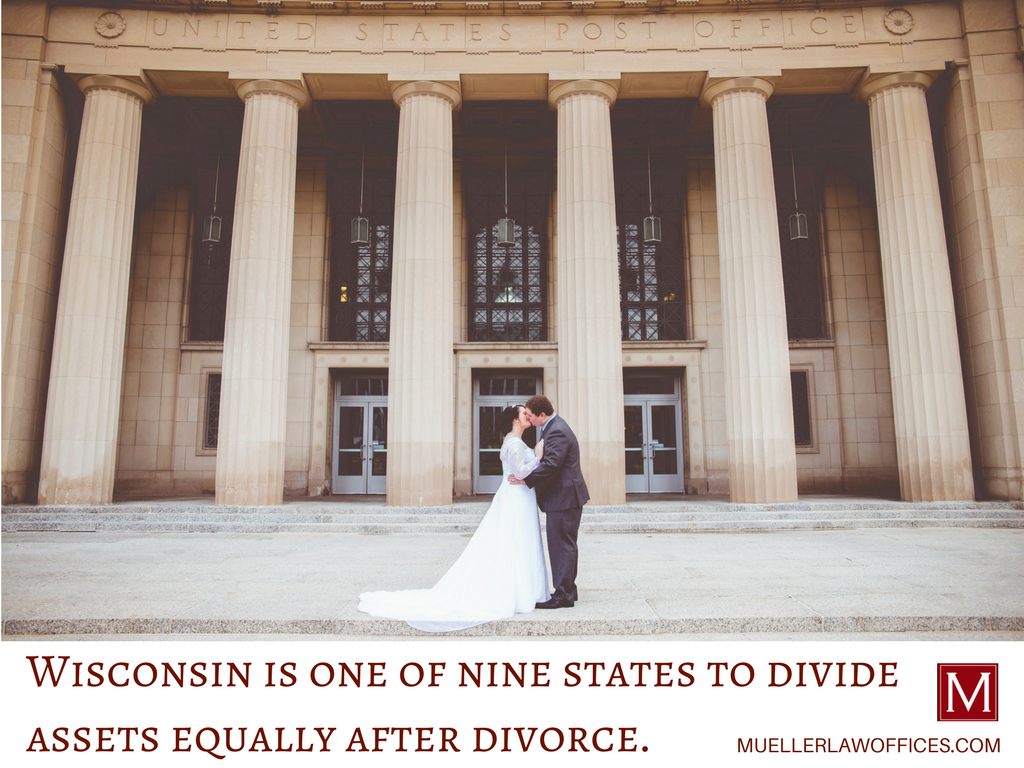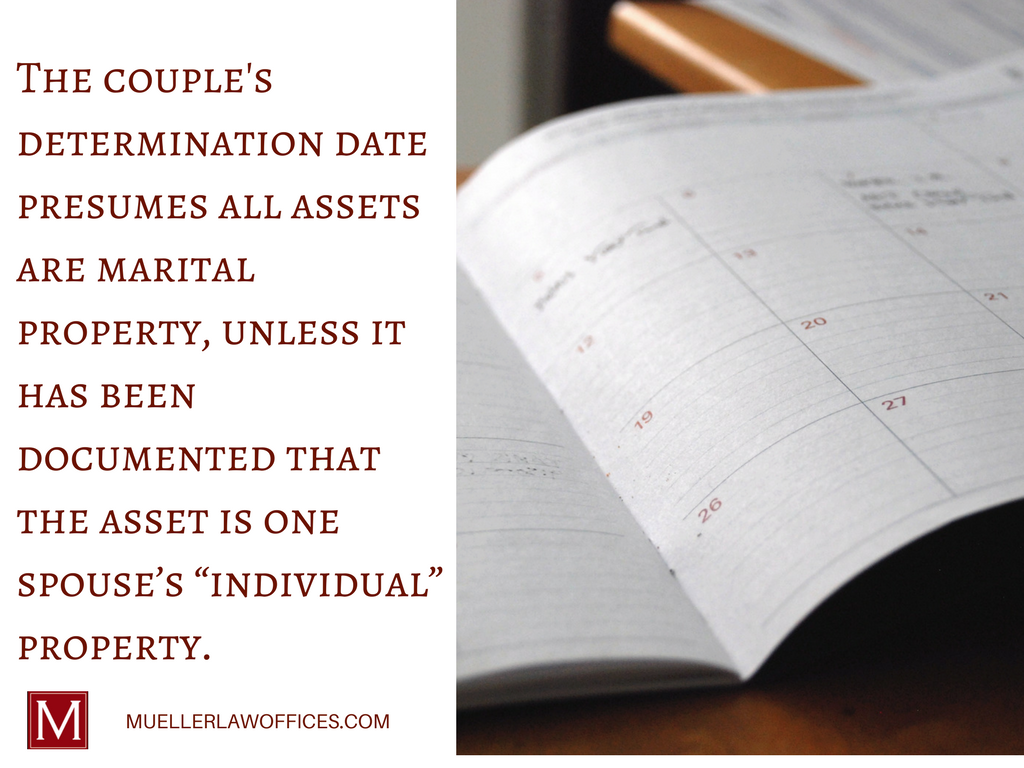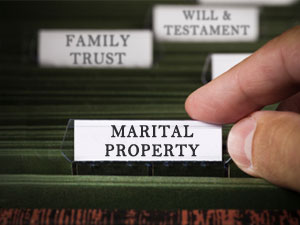Are there wedding bells in your future? If yes, congratulations! While this is one of the more significant occasions in your life, have you and your future spouse taken the time to have a serious conversation about the Wisconsin Marital Property Law? I’m guessing you haven’t – and that’s okay. As a Legal Attorney with more than 25-years of understanding this complicated law, I’m a great resource.
Continue reading to review some of the most commonly asked questions about the Wisconsin Marital Property Law. If you’ve still got questions, let’s sit down and talk face to face. I’m truly happy to help.
Most Commonly Asked Questions | Wisconsin Marital Property Law

What is the Wisconsin Marital Property Law?
The Wisconsin Marital Property Law was enacted in 1986 to ensure all marital assets (and debts) were distributed equally, in the event of divorce. As one of nine states abiding by the Community Property Law, Wisconsin courts base distribution on a number of factors, such as earnings, length of the marriage, property brought into the marriage, etc.
In short, understanding this law is important as it controls the ownership of your marital assets and, in the event of a divorce, will control every element of your finances.
Does It Matter if I Earn Most or All of the Income?
No. In most cases, property and proceeds are divided regardless of who earns all or most of the income. Whatever you acquire as a couple throughout your marriage – including debt – will belong the both of you equally.
For example, think about your spouse’s 401(k). Over time, this account’s value grows as a result of contributions, interest, and dividends. You will have equal marital interest in the account, even though the 401(k) is titled in your spouse’s name.

When Does the Law Come into Effect?
If you’re getting married in the state of Wisconsin, and you and your future spouse are both Wisconsin residents, the law will go into effect the day you legally say, “I do.” This is also known as the “determination date.” If you’re an out-of-state newly married couple, the determination date will be enacted once you both become Wisconsin residents.
What is Separate Property?
Think of separate property as the assets that belong to you or your spouse – individually – before your determination date. Individual property could also include gifts or property that are inherited.
In the event of a divorce or death, separate property is exempt from distribution in all states. However, if it is mixed with the couple’s marital property, it will likely become marital property. For instance, if your spouse deposits a check received as an inheritance (which is individual property) into your joint investment account, it is likely going to become marital property.
Can You Change the Effect of the Wisconsin Marital Property Law?
Yes. However, the effect of the law can only be changed – or avoided entirely – by having a documented marital property agreement. This agreement outlines your rights and obligations with respect to your property and your spouse’s property. Additionally, it is usually signed before you get married, but it can be executed afterward, too.

A Legal Attorney Can Help
There is a lot of work that goes into planning for your big day. And while no one wants to talk about divorce during this celebratory time, it is important to understand how the Wisconsin Marital Property Law could potentially impact your future – for better or worse. If you are entering a second marriage (click HERE to read my blog on estate planning for a second marriage) or in a blended family, you will especially want to know how the law affects your unique situation.
It’s my job to educate my clients about their legal rights. If you’re looking to be more informed, let’s talk. Click below to set up an appointment.
Like this article? Please share it:Everything You Need to Know about Estate Planning for Your Second Marriage
Before you say “I do” a second time around, you need to be prepared. Estate planning for your second marriage is imperative. And, as your Estate Attorney, I will help you and your future spouse take care of the complicated stuff so you can focus on the fun part of getting remarried.
Wisconsin is a Marital Property State
This is one of the first things you and your future spouse should know. Why? Your marriage will affect the ownership of all of your assets, regardless of how the asset is titled, which means: change in ownership will affect the division of your assets in the event of a divorce and/or upon your death.
In many instances, failing to revise your estate plan will result in a distribution that is substantially different from what you intended. So, you need to revise or prepare a well-documented estate plan. To learn more about how you and your new spouse can be protected, click below to connect.
Finances Are Often More Complex
You and your future spouse’s respective financial situations are probably a little more complex than when you first married. Why? It’s possible you have more assets or income. Or, one or both of you may have children from previous relationships. In either of these cases, it may be in both parties’ interest to execute a prenuptial agreement.
Here are the most significant issues to address when determining whether or not a prenuptial agreement is needed…

If it is in your best interest to sign a prenuptial agreement, the rest of your estate planning documents (Wills, Revocable Trusts, Powers of Attorney, etc.) should be updated. Your estate plan must reflect both of your decisions and your new marriage.
Estate Planning for Your Second Marriage is Imperative – Let’s Get You Prepared.
If love is in the air a second time around, and you’re ready to get remarried, reach out. I have more than 25-years of experience helping couples manage the legal complications of getting married a second time. Again, this should be a celebratory time. Estate planning for your second marriage will keep protected down the road.
Like this article? Please share it:Wisconsin’s Marital Property Law

Wisconsin’s marital property law became effective on January 1, 1986. The law was enacted to formally recognize that both spouses contribute to a marriage even though only one may earn an income. Under the marital property law, whatever the couple acquires during the marriage belongs to them equally, regardless of whose name is on the title. This applies not only to earned income, but also unearned income such as interest and dividends. For example, if one spouse has a 401(k), and over time the account’s value grows as a result of additional contributions, as well as interest and dividends generated by the securities held in the account, the other spouse has an equal marital interest in the account even though it is actually titled only in the contributing spouse’s name. It is important to note, however, that marital property law applies to a couple’s debt and liabilities in the same manner as it does their property.
Like this article? Please share it:



